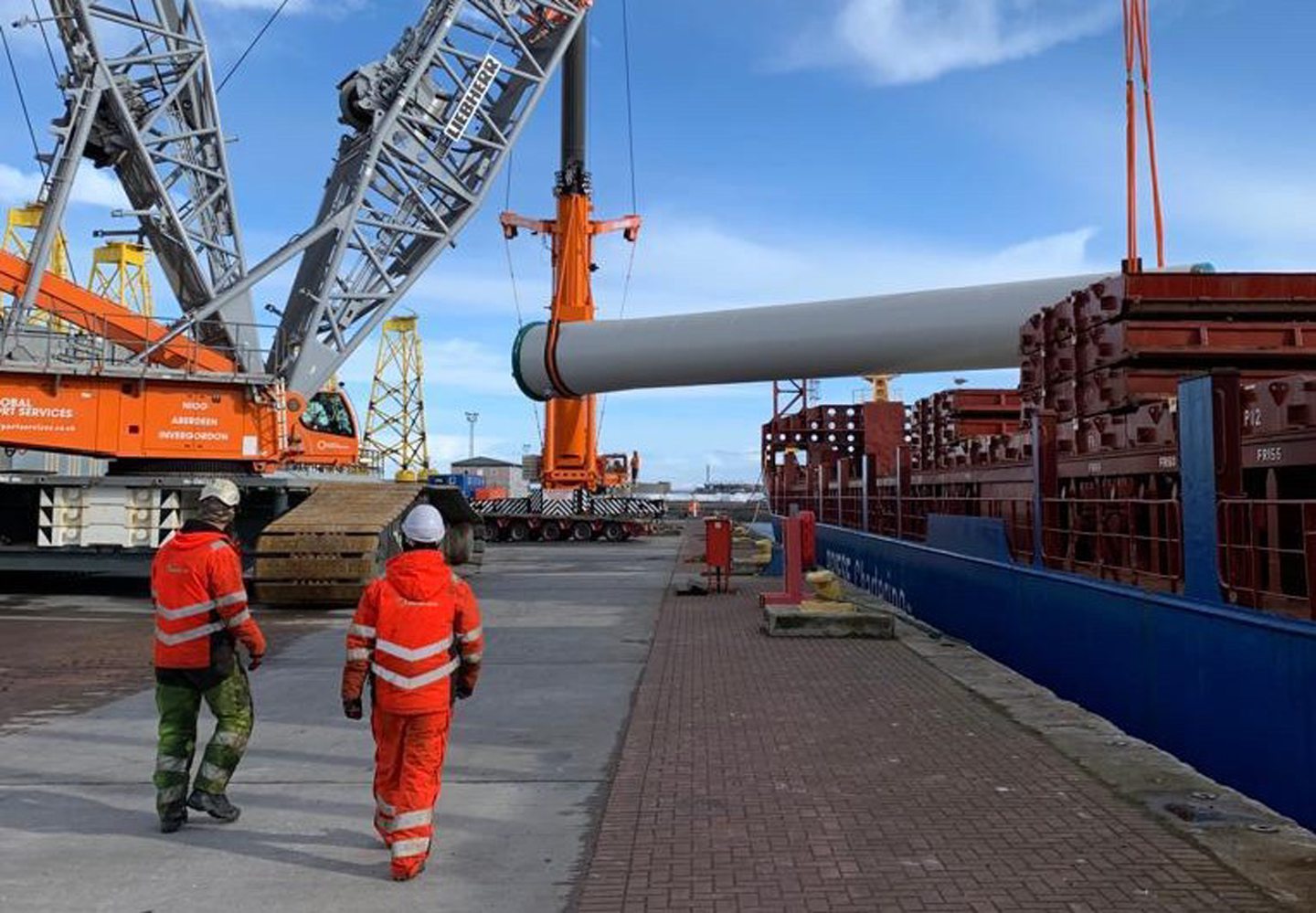
Former Tory MP Chris Skidmore has criticised the UK government over its “consistent pattern of favouritism” towards the North Sea oil and gas sector when it comes to decarbonisation efforts.
In an interview with Carbon Brief, Mr Skidmore said he was concerned the UK will be “spending taxpayers’ money on tax breaks for industries that will be rapidly out of date” as the world moves towards renewable energy.
As a minister, Mr Skidmore signed the government’s 2050 Net Zero pledge into law in 2019.
He resigned as a Conservative MP at the start of this year over the government’s Offshore Petroleum Licensing Bill, which aims to introduce annual North Sea licensing rounds.
Soon after Mr Skidmore’s resignation, the head of the government’s Climate Change Committee (CCC) Chris Stark also stepped down.
Meanwhile, former Tory minister and COP26 chair Alok Sharma announced he would not support the government’s annual North Sea licensing plans, describing the bill as a “total distraction“.
Debate in the House of Commons on the offshore licensing bill has been delayed until next Monday, January 22.
North Sea part of ‘culture war’
Asked why the UK government seems intent on maximising North Sea oil and gas recovery, Mr Skidmore said there had been efforts to create a “culture war on the back of net zero”.
“There’s been a pivot towards trying to create a culture war on the back of net-zero as somehow being a measure that is juxtaposed to energy security,” he said.
“It is completely false. Net zero is energy security.
“There couldn’t be any stronger way to deliver energy security than diversification of supply and moving away from foreign-owned volatile fossil fuels.”
With the UK heading for a general election, Mr Skidmore said Labour’s commitment to not issue new North Sea licences had been seen as an opportunity by the Conservatives.
“A really important point is that no one has ever said that we shouldn’t be using our existing fossil fuel on the net-zero balanced pathway,” he said.
“But everyone has said no additional new fossil fuel licences, and this blurring of the lines – somehow claiming that you’re going to cost 200,000 jobs – those jobs will be lost in 10 years’ time because private investors will have disinvested in fossil fuels in the North Sea.
“These will be stranded assets, as well as stranded communities, and it makes me angry that people are playing a culture war, claiming that, on the other side, somehow those that back net zero are not thinking this through.”
Oil and gas net zero investments
Mr Skidmore added that if the UK wanted to source oil and gas with lower production emissions, it should be buying its resources from Norway instead of supporting continued domestic extraction.
However, trade association Offshore Energies UK (OEUK) claims the sector is set to invest up to £250 billion in the North Sea by 2030, with as much as 60% forecast to be spent on renewables and low carbon projects.
North Sea oil and gas operators BP and Shell are also investing billions in Scotland’s supply chain as part of ScotWind offshore projects.
Decommissioning projects are also expected to lead to £20 billion in investment in the North Sea over the next decade.
In addition, some North Sea industry leaders have warned UK renewables projects and jobs are at risk if the domestic oil and gas sector is not supported.
The industry has also warned of the potential impacts to offshore wind and carbon capture and storage (CCS) developers if offshore drilling rig operators continue to leave the North Sea for more lucrative opportunities internationally.
North Sea sector ‘marking its own homework’
Meanwhile, Mr Skidmore said many of the recommendations contained in the net zero review he chaired had been ignored by the government.
“But all the recommendations in my review around [the oil and gas sector, such as] bringing forward a methane flaring ban – which has been in place in Norway since 1971 – the government refused to do it,” he said.
“I backed the CCC’s [Climate Change Committee] recommendations that we should move further [and] faster on electrification and decarbonising oil and gas.”
Mr Skidmore said the UK government instead backed the North Sea Transition Deal (NSTD), which he said was “drawn up by the sector itself” and an example of the industry “marking its own homework.”
The NSTD was agreed between the UK Government and the oil and gas industry in 2021.
According to the North Sea Transition Authority (NSTA) regulator, the deal aims to “deliver the skills, innovation and new infrastructure required to decarbonise North Sea production”.
While the oil and gas sector welcome the deal’s measures to protect supply chain jobs in exchange for commitments on emissions reduction, it led to criticism from environmental groups.
Mr Skidmore said he did not want to demonise the sector, but believed “everyone should be treated fairly”.
He also pointed to recommendations to create a net zero fund from taxes collected from the oil and gas sector for reinvesting into clean energy projects, which the government refused to take forward.
“So there’s been a consistent pattern of favouritism towards one particular sector at the expense of others,” he said.
Net zero jobs transition
Without that investment, Mr Skidmore said he was worried about the future impact on those currently employed in the oil and gas sector.
“I’m extremely worried that this becomes a similar situation to what happened with coal,” he said.
“In that there is not enough fossil fuels to be extracted, they will become evermore expensive, and at a time when everyone else is moving their investments into renewables and clean technology and clean power, we will be spending taxpayers money on tax breaks for industries that will be rapidly out of date.”
Mr Skidmore said the government needed to transition “highly-skilled, fantastic workers” into renewable and decarbonisation projects.
If left too late, he said communities dependant on oil and gas jobs will pay the price.
“I’m incredibly concerned that this is short-term politics at the expense of long-term security – not just energy security, but the job security of this country.”
A recent report from OEUK found more than 90% of workers employed in oil and gas production and its associated supply chain have skills that are potentially transferrable to wind, carbon capture, utilisation and storage (CCUS) and clean hydrogen production.
General election
Looking ahead to the UK general election, Mr Skidmore said he expected politicians and sections of the media to continue to exploit culture war “battle lines” on climate change.
Ultimately, Mr Skidmore said he is still optimistic the UK can “return to its leadership position” on climate, “if it wants to”.
“I hope that, if we can get back to a stage of moving away from this culture war, if there’s a change in administration, if there’s an opportunity to signal that the UK is willing to lead again, then we can,” he said.
Recommended for you


 © Supplied by Shutterstock
© Supplied by Shutterstock © Supplied by BP
© Supplied by BP © Shutterstock
© Shutterstock © Supplied by Global Wind Projects
© Supplied by Global Wind Projects